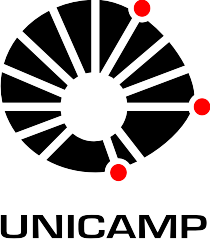Unified Area
“Theater, Dance and Performance”
The choice of a single program comprising dance, theater and performance stems from a conception of the artistic thought of the program’s faculty since the introduction of performing arts in Unicamp in 1985, with the creation of the Performing Arts and Body Arts Departments. Viewing art as essentially interdisciplinary, for 30 years the Unicamp Arts Institute courses have been educating generations of artists who investigate the intersection of dance, theater and performance, recognizing this intersection as a reflection of a major evolutionary and revolutionary movement in performing arts in Brazil and other countries.
Such interdisciplinarity and consistency in bringing together theater, dance and performance – as well as related areas such as yoga and circus and martial arts, among other body arts – led to the design of this unified graduate program called “Performing Arts”, which encourages exchange and production of knowledge in performing arts based on the incursion of artists outside their comfort zone.
LINES OF RESEARCH
The Performing Arts Graduate Program/UNICAMP was created with three lines of research: (i) Techniques and Processes in Training Performing Artists; (ii) Performing Arts Poetics and Languages; and (iii) Art and Context, which operate transversally, establishing a dialogue between dance, performance and theater in a radial structure, with the subject – the performing body – as the hub, constituting and being constituted by the language that radiates from and circumscribes it in performing poetics. Both poetics and subject engender and are engendered in the vast fabric of cultures – viewed as contexts – from investigations in the field of technique that lead to the development of the performing artist as a thinking, dancing, acting being, in a social context reflected in him and which he, in producing art, also reflects.
Therefore, the program’s lines of research were conceived based on three pillars: the “subject-artist” pillar, structuring the Techniques and Processes in Training Performing Artists line; the “artist-in-performance” pillar, structuring the Performing Arts Poetics and Languages line; and the “artist-in-the-world” pillar, structuring the Art and Context line. With this framework the program aims to interconnect territorialities between knowledge and research, enabling interdisciplinarity to be combined from the “heart of the matter” of each area. Most of our faculty members are qualified to supervise projects in at least two of the three research lines, which are not mutually exclusive; however, they are assigned to the lines of research according to their most relevant contributions at a given point in their artistic-academic careers. That is why the program proposes a transversal rather than vertical perspective for understanding the research lines.
Line of Research: “Techniques and Processes in Training Performing Artists”
The “Techniques and Processes in Training Performing Artists” line of research comprises theoretical, practical and practical-theoretical investigations of development processes, techniques, systems, methods, training, exercises, training/learning proposals and research of performing artists, which are constituted as kinds of knowledge and practices produced in the actual area, in constant dialogue with other fields of knowledge, which feed and are reworked in artistic action and thought. The “Techniques and Processes in Training Performing Artists” line also includes the teaching of the researched arts, since the very concept of technique presupposes self-transformation, often mediated by a performing arts professor or director. Studies of the educational, technical and experimental procedures of actors, dancers and performers may also imply questioning their underlying worldviews as well as the historical transformations of the very meaning of artistic activity.
Line of Research: “Performing Arts Poetics and Languages”
The “Performing Arts Poetics and Languages” line of research comprises investigations focused on the processes of language construction configured in performances, works, interventions, performative actions, experiments. It covers studies and analyses of artists’ works and procedures as a means to discuss and propose theatrical and performative languages. It includes both the investigation of traditional frameworks and their transformations in time and space and the research of procedures that break with established aesthetic models, in theoretical, practical and practical-theoretical approaches.
Line of Research: “Art and Context”
The “Art and Context” line of research addresses theoretical and theoretical-practical issues related to artistic processes and their broader contextual insertions, interconnecting the various dimensions of performing arts. It focuses on investigating the links between artistic activity and cultural, social, political, pedagogical, historical, anthropological and philosophical configurations by mapping and analyzing their mutual strains, transformations, developments and contaminations. It seeks to detect emerging meanings of performing arts creation in new contexts, mobilizing and coordinating theoretical resources capable of addressing other configurations and modes of artistic activity in society. Given the transversality running through the program’s lines of research, the “artist-in-the-world” pillar is not disconnected from artistic praxis; therefore, the Art and Context line, rather than research into sociology, pedagogy, philosophy, anthropology or history, aims at the interlocution of these areas with the knowledge of artistic experience.
For further information on the Research Groups, see:
https://www.youtube.com/watch?v=GiWPSGGMlqs&feature=youtu.be

